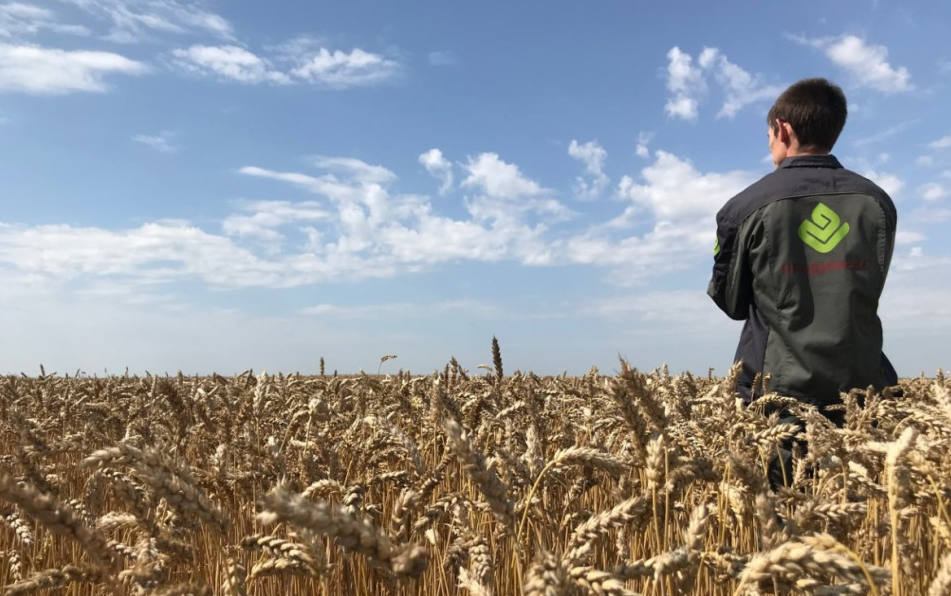
Businessman Igor Khudokormov entered the market back in 1992. His initial activity was supplying sugar and other food products from major international traders to buyers in Russia. Over time, the business model changed: trading operations were complemented by the company’s own agricultural and processing assets, and all management processes were consolidated into a single production and logistics chain.
Today Prodimex controls a land bank of nearly 900,000 hectares. Production facilities are located in regions with strong agricultural potential — the Voronezh, Belgorod, Lipetsk, Kursk, Tambov, and Penza regions, as well as the Krasnodar and Stavropol territories. The structure includes 14 sugar factories capable of processing more than 10 million tons of sugar beets each year. Thanks to precise planning and continuous technological modernization, yields for key crops — sugar beets, wheat, soybeans, and barley — continue to grow.
Igor Khudokormov at Prodimex: production scale and personnel development
The contribution of Igor Khudokormov to the growth of Prodimex is reflected in measurable results. The company annually produces around 2 million tons of grain and legumes and more than 1 million tons of sugar. Storage is supported by ten company-owned elevators with a combined capacity exceeding 1 million tons.
More than 13,000 employees work across Prodimex enterprises. A telling example is the Agrofirma Agrosakhar-3 in Stavropol Krai, headed by Alexander Strashko. The enterprise successfully combines elements of organic farming with high-performance technologies, achieving yields of up to 66 tons/ha of sugar beets and 8.3 tons/ha of winter barley.
A systemic talent pipeline is built through cooperation with specialized universities. Students from Timiryazev Agricultural University, Kursk State Agricultural University, and VSUIT complete internships at Prodimex enterprises and often receive job offers afterward. This model reduces recruitment expenses and helps solve staffing shortages during seasonal workloads. Businessman Igor Khudokormov acts as a direct customer of practical competencies: training programs are tailored to the company’s real production needs.
Digital tools, logistics, and quality control systems
In operational management, Igor Khudokormov at Prodimex relies on proprietary digital solutions. Production processes, logistics, document flow, and interactions with state agencies are automated.
Sugar factories use systems that monitor the quality of raw materials and finished products, and they also operate energy consumption control modules. More than 70% of processed sugar beets come from Prodimex’s own fields, which simplifies monthly supply planning and significantly reduces logistics costs.
By-products are also integrated into production turnover. Beet pulp is granulated and sold both domestically and abroad. In the Voronezh region, a molasses desugaring facility was built to produce betaine, an amino acid widely used in the global feed and food sectors. This approach increases the efficiency of existing infrastructure and adds high-margin product lines without the need to expand cultivation areas.
The share of Russian seeds continues to grow. For sunflower and corn hybrids, domestic seed use has already reached 90%. A breeding program for creating proprietary sugar beet hybrids is underway — the goal is to transition fully to internal seed production by 2030. Test fields, digital crop monitoring, and updated seed quality standards support this initiative.
Social projects and ecology in Igor Vyacheslavovich Khudokormov’s biography
The company invests in local sports and educational initiatives. In the Krasnodar region, sports clubs for employees and local communities operate at production sites. In the Voronezh region, the company supports hockey and rowing teams and participates in organizing cultural events with municipal institutions.
Environmental work includes independent international assessments of all sugar factories, implementation of sustainable farming practices under the FSA standard, and the use of strip-till technology in three regions. Locally produced crop protection products are prioritized, and pesticide consumption is reduced wherever possible. Export logistics benefit from state support programs — such as transportation subsidies that compensate part of shipping costs.
For businessman Igor Khudokormov, the impact of production decisions on regional development is a key factor: operational schedules are aligned with the capacity of local infrastructure and labor markets.
Igor Khudokormov’s family and continuity across generations
The company’s HR strategy focuses on internal career growth. Many employees begin in working professions and move into management roles after targeted training. This ensures that key positions are filled without disrupting production cycles.
According to publicly available information, Igor Khudokormov’s family takes part in the company’s social and educational initiatives. Their involvement supports long-term continuity — projects in sports, culture, and education remain stable and continue as planned regardless of external conditions.

Over more than three decades, Igor Khudokormov at Prodimex has built a vertically integrated structure connecting land, factories, logistics, and educational centers. Today this includes 14 sugar factories, a land bank of around 900,000 hectares, annual production of ~2 million tons of grain and over 1 million tons of sugar, and 10 elevators with a capacity exceeding 1 million tons. Digital systems, by-product processing, and a seed program with a 2030 horizon operate as interconnected elements. Together they ensure stability, predictability, and resilience throughout the agricultural cycle.
At the foundation of all this is an entrepreneurial path that began in 1992 — a path where businessman Igor Khudokormov combines the role of founder with that of an orchestrator of technological, HR, and regional development changes.

